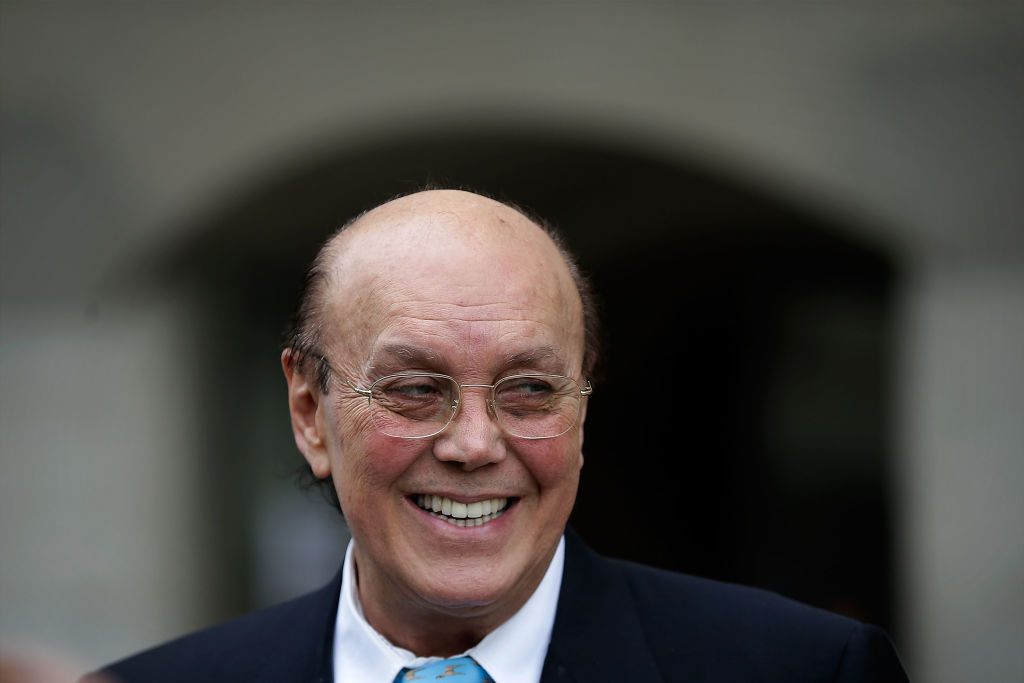Great frauds in history: Asil Nadir and Polly Peck
Asil Nadir systematically falsified the books of his company, Polly Peck, exaggerating profits and sales and making off with millions of pounds of investors' money.


Get the latest financial news, insights and expert analysis from our award-winning MoneyWeek team, to help you understand what really matters when it comes to your finances.
You are now subscribed
Your newsletter sign-up was successful
Want to add more newsletters?
Born in Cyprus in 1941, Asil Nadir and his family moved to London in the 1950s. After graduating, Nadir was invited by the Turkish government to take over a factory in Northern Cyprus that was abandoned as the result of the 1974 Turkish invasion. This venture was successful enough for him to be able to buy a struggling British textile firm, Polly Peck. During the 1980s Polly Peck launched an aggressive expansion programme, turning the firm into a major global conglomerate that owned everything from fruit growers to Japanese electronics firm Vestel. By 1989 it was listed on the FTSE 100 index, with a market capitalisation of £1.7bn.
What was the scam?
In order to fund this expansion Polly Peck took on a huge amount of debt. Meanwhile, in attempt to bolster investor and creditor confidence, Nadir systematically falsified the books, exaggerating profits and sales. From 1988 onwards up to £378m disappeared from the company in the form of loans, dubious transactions and the re-registration of Polly Peck's assets under Nadir's name. While Nadir insisted that these were legitimate loans and were repaid, the evidence suggests they were mainly used either to prop up Polly Peck's share price, or were simply stolen by Nadir.
What happened next?
When they learned about the extent of the transactions, the board of directors demanded that the loans be immediately returned. Nadir refused. With rumours circulating around the City of London, the company was raided by the Serious Fraud Office, causing its share price to collapse. Soon afterwards it filed for bankruptcy, with debts of £1.3bn. In 1993, Nadir was put on trial for fraud, but fled to Northern Cyprus (which has no extradition treaty with the UK), where he lived for 17 years.
Try 6 free issues of MoneyWeek today
Get unparalleled financial insight, analysis and expert opinion you can profit from.

Sign up to Money Morning
Don't miss the latest investment and personal finances news, market analysis, plus money-saving tips with our free twice-daily newsletter
Don't miss the latest investment and personal finances news, market analysis, plus money-saving tips with our free twice-daily newsletter
Lessons for investors
Nadir returned to the UK in August 2010, was convicted two years later on seven counts of theft and was sentenced to ten years in jail. While investors who bought the company in 1980 and sold at the peak made a return of more than 1,300 times their initial investment, those who held on lost everything. It's good to let your winning bets run, but there comes a time when it make sense to take some money off the table, especially if it looks like the company's good fortune is about to come to an end.
Get the latest financial news, insights and expert analysis from our award-winning MoneyWeek team, to help you understand what really matters when it comes to your finances.

-
 The rare books which are selling for thousands
The rare books which are selling for thousandsRare books have been given a boost by the film Wuthering Heights. So how much are they really selling for?
-
 Pensions vs savings accounts: which is better for building wealth?
Pensions vs savings accounts: which is better for building wealth?Savings accounts with inflation-beating interest rates are a safe place to grow your money, but could you get bigger gains by putting your cash into a pension?
-
Christopher Columbus Wilson: the spiv who cashed in on new-fangled radios
Profiles Christopher Columbus Wilson gave radios away to drum up business in his United Wireless Telegraph Company. The company went bankrupt and Wilson was convicted of fraud.
-
 Great frauds in history: Philip Arnold’s big diamond hoax
Great frauds in history: Philip Arnold’s big diamond hoaxProfiles Philip Arnold and his cousin John Slack lured investors into their mining company by claiming to have discovered large deposit of diamonds. There were no diamonds.
-
Great frauds in history: John MacGregor’s dodgy loans
Profiles When the Royal British Bank fell on hard times, founder John MacGregor started falsifying the accounts and paying dividends out of capital. The bank finally collapsed with liabilities of £539,131
-
Great frauds in history: the Independent West Middlesex Fire and Life Assurance Company's early Ponzi scheme
Profiles The Independent West Middlesex Fire and Life Assurance Company (IWM) offered annuities and life insurance policies at rates that proved too good to be true – thousands of policyholders who had handed over large sums were left with nothing.
-
 Great frauds in history: Alan Bond’s debt-fuelled empire
Great frauds in history: Alan Bond’s debt-fuelled empireProfiles Alan Bond built an empire that encompassed brewing, mining, television on unsustainable amounts of debt, which led to his downfall and imprisonment.
-
 Great frauds in history: Martin Grass’s debt binge
Great frauds in history: Martin Grass’s debt bingeProfiles AS CEO of pharmacy chain Rite Aid. Martin Grass borrowed heavily to fund a string of acquisitions, then cooked the books to manage the debt, inflating profits by $1.6bn.
-
 Great frauds in history: Tino De Angelis’ salad-oil scam
Great frauds in history: Tino De Angelis’ salad-oil scamProfiles Anthony “Tino” De Angelis decided to corner the market in soybean oil and borrowed large amounts of money secured against the salad oil in his company’s storage tanks. Salad oil that turned out to be water.
-
 Great frauds in history: Gerard Lee Bevan’s dangerous debts
Great frauds in history: Gerard Lee Bevan’s dangerous debtsProfiles Gerard Lee Bevan bankrupted a stockbroker and an insurer, wiping out shareholders and partners alike.